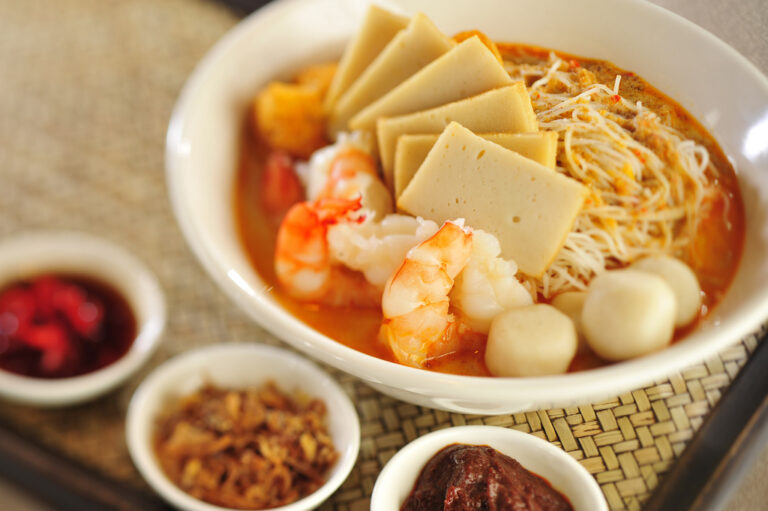Introduction: The Rich Flavors of Singaporean Cuisine
Singaporean cuisine is a fusion of various cultural and regional influences, making it a unique blend of flavors and tastes. The country’s diverse cultural history has played a significant role in shaping its cuisine, from the impact of colonialism and migration to the influences of neighboring countries and globalization. Singapore’s location at the crossroads of major trading routes has also contributed to the diverse range of ingredients and flavors used in its cuisine.
Singaporean cuisine is known for its rich, bold flavors and use of spices and herbs. The cuisine combines elements of Chinese, Malay, and Indian cooking techniques and ingredients, creating a fusion of cultures that has evolved over time.
Colonialism: How it Shaped the Singaporean Palate
Colonialism played a significant role in shaping Singaporean cuisine, particularly during the British colonial period. The British brought with them Western cooking techniques and ingredients, which were then fused with local ingredients and cooking methods. The result was a blend of cuisines that included British dishes such as roast beef and Yorkshire pudding, as well as local dishes such as laksa and nasi lemak.
The influence of colonialism can still be seen in Singapore’s cuisine today, with dishes such as Hainanese chicken rice and fish and chips being popular options. The British also introduced tea to Singapore, which has become a staple in the country’s food culture.
Influences from Neighboring Countries: Malaysia and India
Singapore’s close proximity to Malaysia and India has also had a significant influence on its cuisine. The country’s cuisine shares many similarities with Malaysian cuisine, particularly in the use of spices and ingredients such as coconut milk, turmeric, and lemongrass. Popular dishes such as nasi lemak and satay are also shared between the two countries.
Indian cuisine has also had a strong influence on Singaporean cuisine, particularly in the use of spices such as cumin, coriander, and cardamom. Dishes such as biryani and curry are popular in Singapore, and the country’s cuisine also includes Indian-inspired dishes such as roti prata and thosai.
The Impact of Immigration on Singaporean Cuisine
Singapore’s history as a hub for migration has also had a significant impact on its cuisine. Chinese immigrants brought with them their culinary traditions, which have been fused with local cooking techniques and ingredients. Malay and Indian immigrants also contributed to Singapore’s cuisine, adding their own unique flavors and ingredients to the mix.
Today, Singapore’s cuisine is a fusion of these different culinary traditions, resulting in a diverse range of dishes that reflect the country’s multicultural identity.
Globalization and Modernization: The Changing Face of Singaporean Food
Globalization and modernization have also had an impact on Singaporean cuisine. The influence of Western fast food chains and global food trends has led to the rise of fusion cuisine in Singapore. Dishes such as ramen burgers and salted egg yolk croissants have emerged as popular options in recent years.
However, traditional Singaporean dishes continue to hold their place in the country’s food culture, and efforts have been made to preserve and promote these dishes. The Singaporean government has even designated certain dishes as “national dishes,” including chicken rice, laksa, and satay.
Conclusion: A Fusion of Cultures and Tastes in Singaporean Cuisine
Singaporean cuisine is a reflection of the country’s diverse cultural heritage and history. The fusion of Chinese, Malay, Indian, and Western influences has created a unique culinary identity that is both bold and flavorful. With the continued influence of globalization and modernization, Singapore’s cuisine is sure to continue evolving and adapting to new tastes and trends while staying true to its rich cultural roots.

